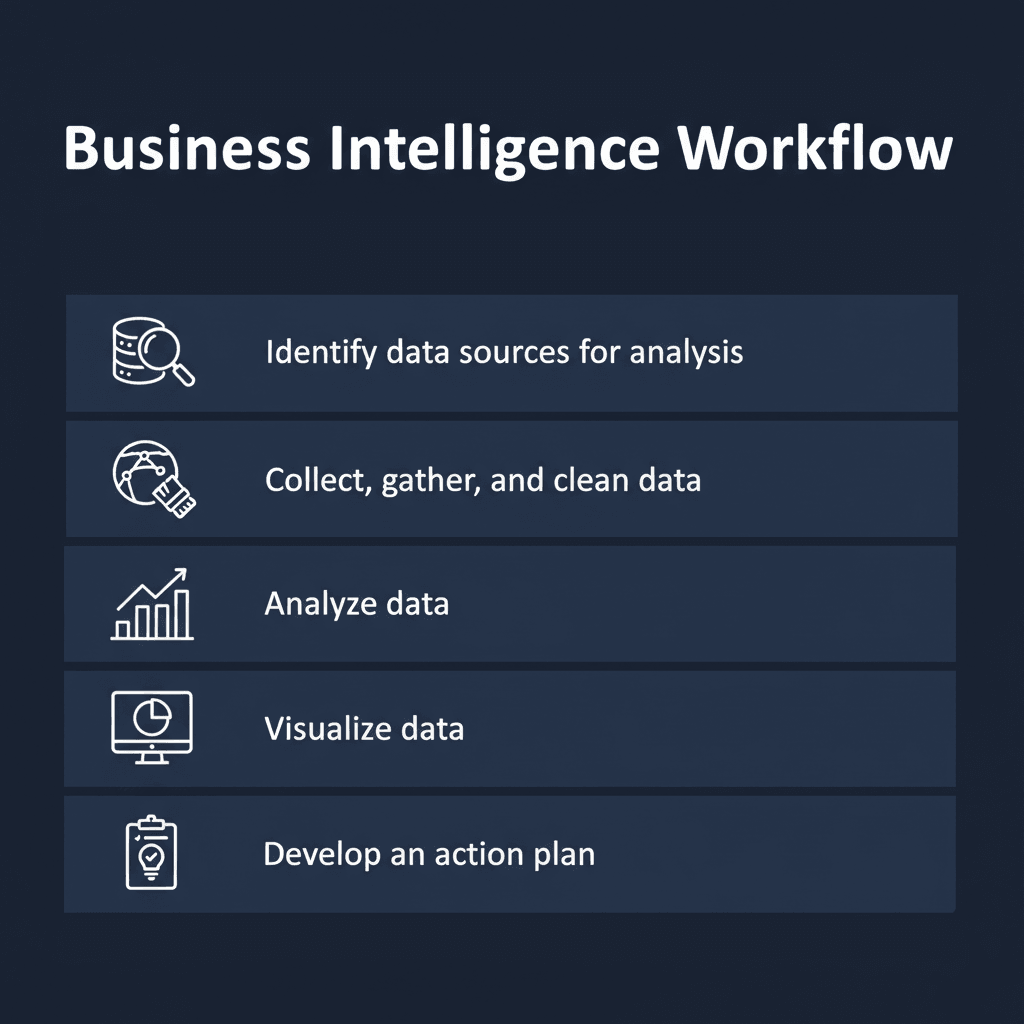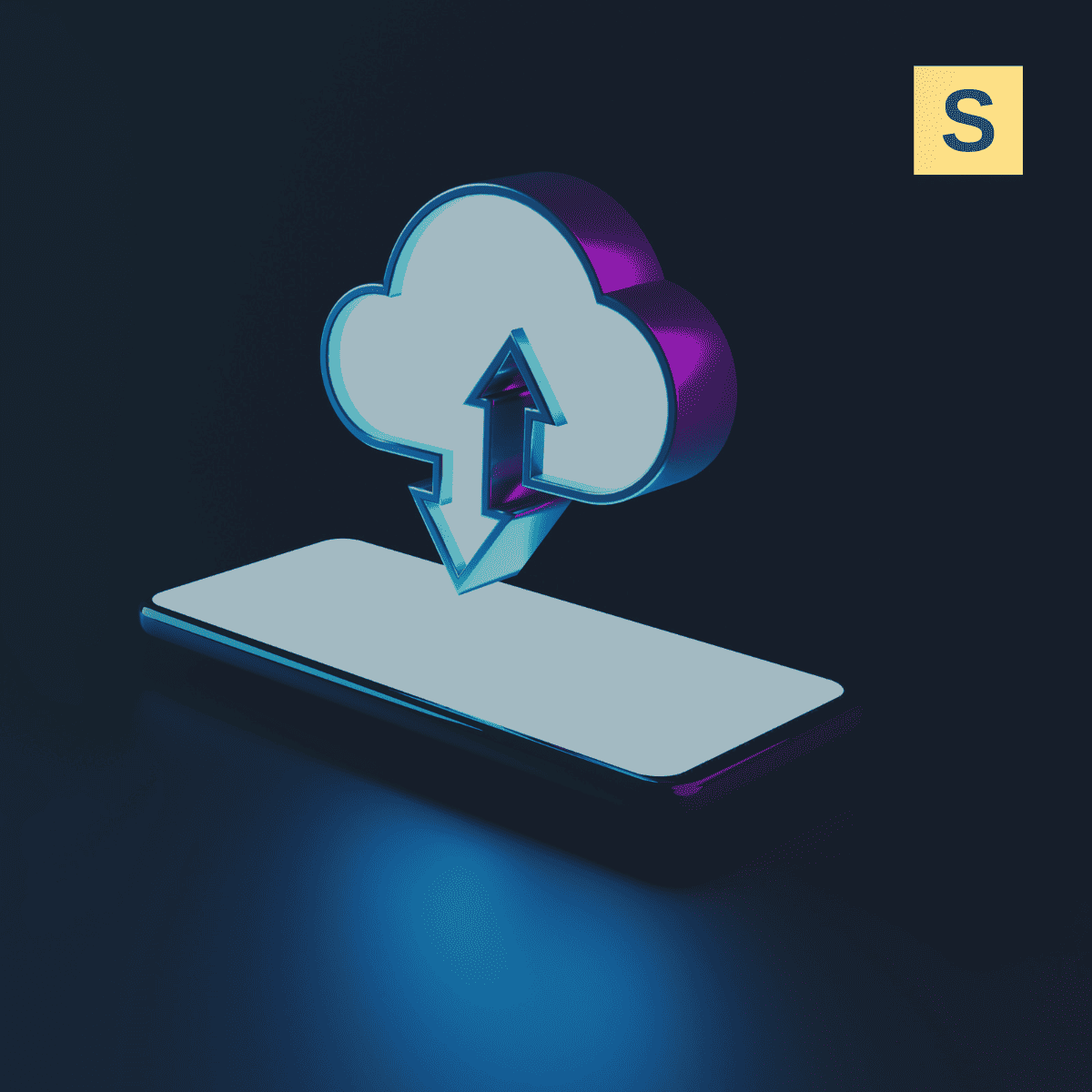Business Intelligence is a set of processes and tools that help organizations turn their business data into actionable insights for improved decision-making.
Business Intelligence Definition
Business Intelligence tools help business leaders analyze both historical and real-time data to gain an understanding of organizational performance. BI allows companies to identify problems, spot trends, and find new business opportunities through data visualization, reporting, and advanced analytics.
The process of implementing Business Intelligence in an organization includes the following steps:
- Identify data sources for analysis. These can include sales, marketing, operations, finance, social media, etc.
- Collect data. Gather and clean data from the listed sources to make it accessible and ready for analysis. This includes removing duplicates, fixing issues, standardizing units, etc.
- Analyze collected data. Use BI tools to find patterns, trends, and relationships.
- Visualize data. Create charts, dashboards, and reports that help you to explore data at different levels.
- Develop an action plan. Make strategic or operational decisions based on your findings, with clear KPIs.

Business Intelligence vs. Business Analytics
Business Analytics and Business Intelligence are both essential for helping companies make data-driven decisions, but they serve different purposes.
Business Intelligence focuses on descriptive analytics. It shows what has happened in the past and what is happening now.
Business Analytics, on the other hand, is future-oriented, using predictive and prescriptive analytics to forecast trends, identify opportunities, and guide strategic decisions.
Benefits of Business Intelligence
Implementing BI in your organization means creating a data-driven culture. This requires new approaches and processes, as well as software and hardware solutions. When functioning as a unified system, BI can optimize operations and increase revenue.
Other benefits of Business Intelligence include the following:
- Data-driven insights that minimize guesswork and enable fact-based decision-making.
- Real-time monitoring of key performance indicators (KPIs) and business metrics to improve performance.
- Enhanced customer satisfaction through a deeper understanding of behavior and purchasing patterns.
- Cost optimization by identifying inefficiencies early and improving resource allocation.
- Improved collaboration with shared dashboards and real-time reporting.
- Competitive advantage through faster responses to market changes and uncovering new business opportunities ahead of competitors.
Check out more SaaS terms in our SaaS Glossary for business leaders.
Business Intelligence Use Cases Across Industries
BI can be applied in any industry. The key is to align it with specific business goals. Here are some use cases that demonstrate Business Intelligence in action.
Retail: Sellers can track revenue by product, region, or channel to identify top and underperforming items. Based on this data, they can adjust pricing, refine marketing strategies, and optimize inventory.
FinTech: Financial companies can identify high-value clients and tailor financial products accordingly to improve profitability.
Healthcare: Hospitals can compare treatment costs across departments to find where resources are being overused or wasted.
Manufacturing: Manufacturers can use BI dashboards to track equipment performance and downtime to reduce maintenance costs and prevent production delays.
Education: Universities and schools can monitor attendance, grades, and engagement to identify at-risk students.
Real Estate: Companies can monitor budgets, timelines, and resource allocation across multiple development projects to detect overspending early, optimize contractor performance, and prevent costly delays.
Telecommunications: Providers can track network uptime, signal strength, and outage frequency across regions. This helps engineers quickly locate problem areas and improve service reliability.
Human Resources: HR teams can use BI to track employee turnover and performance metrics to identify employees who may need additional support or training.
Read also: AI in SaaS: Use Cases and Best Practices
Build and scale your software products with Seedium
Seedium is a trusted web & mobile development company that helps businesses build and scale their software solutions. Since 2017, we have successfully launched over 200 products in more than 15 industries, including SaaS, HRTech, and HealthTech.
Seedium offers a wide range of design & development services to help you achieve your business goals efficiently:
- Web & mobile application development;
- UX/UI & product design;
- Custom software development & integrations;
- AI development;
- Scaling product architecture;
- Providing dedicated development teams.
Feel free to contact us to start a conversation about your project. Let’s build something great together!




